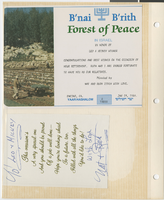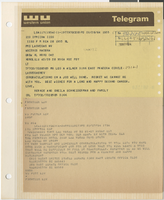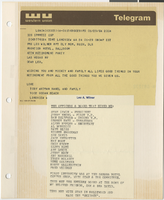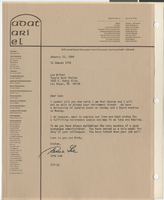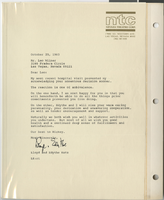Search the Special Collections and Archives Portal
Search Results
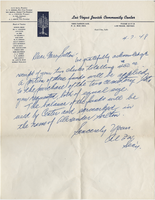
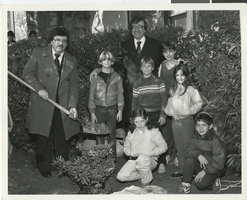
Photograph of group during Tu B'Shevat at Nate Mack Religious School, early 1980s
Description
Identifications on reverse of photograph: Marla Sher, Matthew Feinberg; Second Row: Cantor Simon Bergman, Greg Lipkin, Rabbi Louis Lederman, Jeffrey Lavine, Rachel Groner and Jaimee Shapira
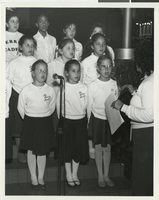
Photograph of Hebrew Academy children singing, 1980s
Description
Identifications on reverse of photograph: Front row, L-R: Gita Lowell, Natalie Boinitz, Stonah Miller; Middle row, L-R: Laura Miller, Mandi Bergman, Rebecca Krasny; Back row, L-R: Jennifer Weinberg, Sheldon Cowles, Jennifer Goldman, Marty Weinberg

Photograph of Chanukah party, 1980s
Description
Identifications on reverse of photograph: Back row, L-R: Cantor Simon Bergman, Lois Bergman, Etta Harmell, Stefanie Evans holding Erica Evans, Jeremy Walton held by Sandi Walton, Carolyn Willougby; Front, L-R: Faye Swartzer, Jerri Swartzer, Ira Sheer, Elaine Sheer, Rebecca Cramer, Sandy Cramer, Michele Willougby and Mark Willougby

